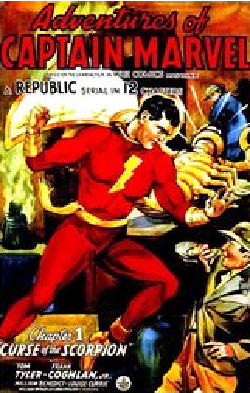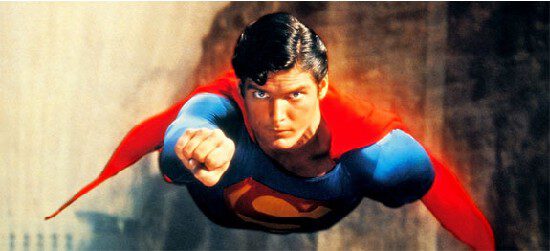Mike Gold: Do Comics Belong In Comics?
I am not a sociologist, although I’ve known a few. But let’s assume the fact that “superheroes” (in the broadest sense) fill a need in our lives. They started out in folk lore, they appear in most if not all bibles, they were popularized in the “penny dreadfuls” which evolved into pulp magazines which evolved into comic books.
 Tarzan, Sherlock Holmes, Zorro and others helped populate the movie theaters going back to its earliest days back to the silent era. When talkies came around, superheroes became the backbone of the short movie serials that were geared to bring patrons back week after week. Flash Gordon, Captain Marvel, Superman, Batman, Blackhawk, Captain America, Spy Smasher and others joined Zorro and Tarzan in this venue. When network radio came along, comics characters from older media (Superman, The Shadow) joined original creations (The Lone Ranger, Green Hornet) and flourished in the just-home-from-school time slots.
Tarzan, Sherlock Holmes, Zorro and others helped populate the movie theaters going back to its earliest days back to the silent era. When talkies came around, superheroes became the backbone of the short movie serials that were geared to bring patrons back week after week. Flash Gordon, Captain Marvel, Superman, Batman, Blackhawk, Captain America, Spy Smasher and others joined Zorro and Tarzan in this venue. When network radio came along, comics characters from older media (Superman, The Shadow) joined original creations (The Lone Ranger, Green Hornet) and flourished in the just-home-from-school time slots.
And television – well, television saved the superheroes’ collective ass. The Adventures of Superman, produced by what is now DC Comics, hit the boob tube before most families had teevee sets. At that very time, comic books were branded by the media as a source – perhaps the source – of juvenile delinquency. Comics outlets were disappearing, either from clerks no longer handling the product or from being squeezed out by chain stores and shopping strips and malls.
 But Superman was right there in our living rooms every week using his cape as a placeholder for 75 years of tradition. Over a decade later, as comic book sales were at a comparative low, the Batman teevee series kept the print medium alive. In 1978 Superman led the way into high-budget motion pictures, not only proving a man can fly, but an old man can extend his life by deploying whatever “new media” is burgeoning at the time. Radio, television, motion pictures – Supes was there first.
But Superman was right there in our living rooms every week using his cape as a placeholder for 75 years of tradition. Over a decade later, as comic book sales were at a comparative low, the Batman teevee series kept the print medium alive. In 1978 Superman led the way into high-budget motion pictures, not only proving a man can fly, but an old man can extend his life by deploying whatever “new media” is burgeoning at the time. Radio, television, motion pictures – Supes was there first.
Today we have more superhero movies and television series than the average person can absorb. Even the average comics fan: most of us do triage. Their popularity is massive, perhaps 20 times bigger than the comic book audience. This has been going on for about a decade and there’s no sign of it slowing down. It will, of course, but history tells us the cinematic comics universes will never go away. Not completely.
(Probably. There haven’t been a lot of successful westerns in the past several decades.)
So I think it is reasonable for me to infer that for most people the superhero story fills a need, probably an emotional, cathartic need.
But there is no washback onto the mothership. Average comic book sales have never been lower, even with the supplemental release of trade paperbacks and hardcovers. The latter has helped, but, you know, Borders went blooie and it’s not as easy to find good general bookstores anymore. It’s even harder to find a well-stocked magazine rack. And harder still to find one that carries more than a handful of comics, if that many.
Back in the day, that day being an hour before the release of the first Star Wars movie, we in the comics business could produce stories where, for example, we can destroy an entire universe on one page, do the Greek chorus bit on the next page, run a full-page cosmic ex Machina on the third, and restore that destroyed universe on the fourth page. Movies simply could not do that.
Well, not only can they do so today, but computers and artistic technicians have brought their gifts to the television screen in a cost-effective manner. And to home computers. And tablets. And smartphones.
So I humbly ask this question: has the comic book outlived its usefulness?
As you consider this, keep in mind that since the turn of the century Warner Bros. and Disney, two of the largest media empires, took control over DC Comics and Marvel Comics, respectively. They are best known for making movies and television shows. They are not known to have a major presence in the lumberjack game.
Will there always be a comic book publishing industry? Of course not. There won’t always be anything. But will comic books live another ten or twenty years?
Ask me after Warner Bros. and Marvel each release a couple of big-budget superhero bombs.












